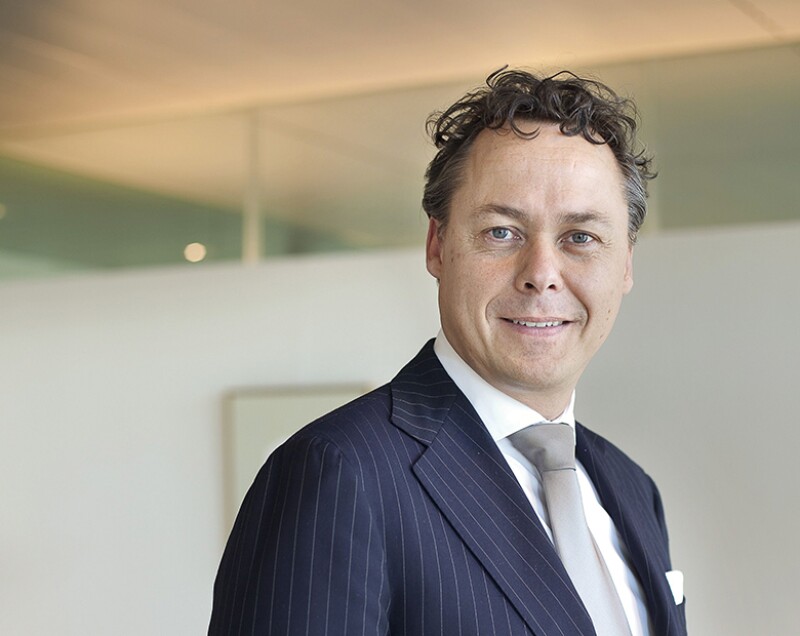
This is the ultimate issue that banks have. We don’t fulfil a primary need. The primary need is housing. The primary need is eating. The primary need is clothing

|
|
THE CEOS |
|
Today’s big tech companies, says the chief executive of ING, Ralph Hamers, have a fundamental advantage over banks. Banks may be close to the financial affairs of their clients, but they lack intimacy with the things people really care about, which does not include banking.
This realization is shaping ING’s strategy to build a platform that will remain relevant, as the post-branch era blows away banks’ traditional advantages.
Ownership of a distribution platform – in most cases, its app – will mean ING can ensure its users get access to its in-house products, helping it maintain a profitable balance sheet. However, this platform must be more akin to an Amazon or app store supermarket offering third-party alternatives, even for current accounts, because merely offering propriety products would mean people start their search elsewhere.
“This is going to happen over time,” he says. “I think the first thing we will do is give customers the opportunity to display their savings with other banks through our app, for example. The next thing is that we’re starting to offer savings, either to start to attack some of our competitors or, if those competitors are more competitive, we’ll offer their products to build credibility that we are an objective app.”
Ambitions
But Hamers’ ambitions go further than making sure clients or users have loyalty to the app because it becomes a dashboard for all their financial affairs – or even because it is a more general outlet for financial products.
“Our app is the 10th app by daily use of our customers in the Netherlands,” he says. “The numbers one through nine are either Google or Facebook products. If customers trust me so much that I really play a role in their daily lives and they check in with me every day, I could offer them other products.”
The problem in Hamers’ view is that if ING begins and ends strictly in finance, then other platforms will always be so much closer to the actions and motivations that lie behind financial services. As a result, ING will not be as good as it could be at marketing and designing its products in terms of the financial structure, price or timing.
“Why should I be limited to banking business only?” he asks. “Can I be much earlier involved in the thought process of my customers, rather than being a product shop? This is the ultimate issue that banks have. We don’t fulfil a primary need. The primary need is housing. The primary need is eating. The primary need is clothing.”
Banking, he says – whether a payment, a consumer loan or a mortgage – is always a secondary need. It is a means towards an end.
“The Amazons, the Facebooks, the Googles of this world – knowing what people are looking for – are involved much earlier in this decision process. They know the trajectory of this customer going through that process and already have more intelligence than we will ever get. The question for me is whether I can build this platform, which is open, so I extend my activities into this decision-making process.
Relevant
“How do I get involved with customers who are looking for a house, rather than asking for a mortgage loan?”
The correct answer, says Hamers, is that the bank could partner with or buy an estate agent.
“That’s exactly what we did. In Holland we bought a digital housing broker, a digital estate agent, that has 4% or 5% of the market. So now we are involved earlier in the process.”
ING’s purchase of that firm, Makelaarsland, took place last year. Selling Dutch houses is not the only means by which ING is moving beyond the more administrative matter of finance, however.
“We are the biggest distribution outlet for Philips products in Holland. We have a big web shop that people use to buy a lot of non-food products, such as barbecues, TV sets, clothing, discount coupons for theatres, which they will get for a better price than could ever be found on the web because of loyalty points they’ve scored through us over time.”
Elsewhere, Hamers says the bank is offering other non-financial retail products in Romania, thanks to a partnership with a local supermarket chain, and in Poland, where it offers an array of services to small businesses.
The bank wants “to be involved earlier in some of the issues that these clients run into, so that we can be more relevant, because we know what they’re looking for.”
